The trick of the classic-rock guitar solo depends on what came before it. The best—which is to say, the most exemplary in this least-relevant, most exuberantly puerile sub-art form—are emergences after transformations, moments when edging balladry finally gives way to real ascendence. Some skin is cracked open. A certain shuddering shakes through the thigh meat, the pelvis, the eyelids. The frequent facial contortions of the soloist are no coincidence—there is catharsis here, if not always orgasm. Foreplay begs: what came before the classic-rock guitar solo? Literally, historically, the blues. Of course, we should shudder at hearing Jimmy Page bang out like a teenage god after Roger Plant’s caterwauling on “Stairway to Heaven,” remembering as we do Willie Dixon. What to do with “Free Bird,” a song that, performed live, morphed for 14-plus minutes from existential schmaltz paean into lightning-storm liberation drive, usually against the backdrop of the giant Confederate flag? What could freedom possibly mean backwalled by an image like that?
The art of Rob Zombie depends upon some skin being cracked open. First as a member of the ’90s metal band White Zombie—what if Roger Corman fucked with Korn?—and later as a solo artist as indebted to detuned bass beating (off) as matted-hair grindhouse raving, Zombie’s music career is decidedly groove-oriented; it’s no accident that the Wachowski sisters enlisted his “Dragula” for an early club scene in The Matrix (1999). Perhaps counterintuitively, then, Zombie’s auteur project as a maker of narrative feature films depends upon embodying and mutilating the straighter confines of the classic-rock form. A greasy remix of The Texas Chain Saw Massacre (1974) as if it were a Universal Halloween Horror Nights haunted maze (which Zombie created simultaneous to pitching Universal execs on his treatment), House of a 1000 Corpses (2003) plays out like a Foghat Greatest Hits disc discounted to $5.99 in a bin at the local grocery store—a half-familiar, half-obscene delight. In The Devil’s Rejects (2005), a quasi, queasy sequel to House of 1000 Corpses, Zombie marshals his most brutally ebullient meditation on classic rock’s unsteady dialectical duet of liberation and punishment.
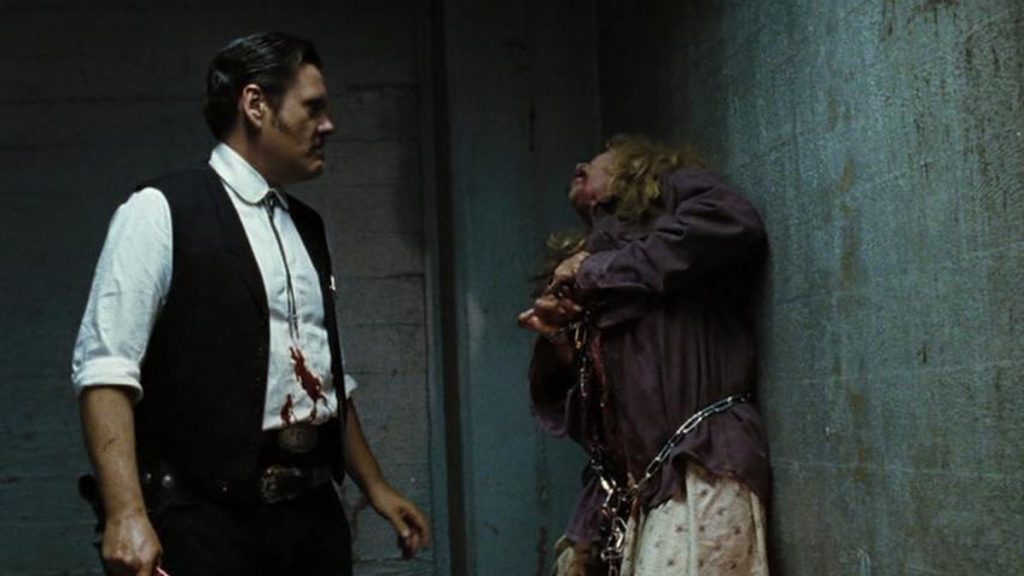
The Devil’s Rejects picks up almost immediately after House of 1000 Corpses’ end, as a rash of good-old-boysy lawmen descend on Firefly Ranch, the site of the first film’s looney-tune torture time. Led by Sheriff Wydell (William Forsythe), who fancies himself an avenging angel and can’t wait to replace his badge with his self-proclaimed “devil slayer” vigilante heritage. The law in The Devil’s Rejects is as itching to violate bodies as the anarchic Firefly family, and while Baby (Sheri Moon Zombie, always shot like the love of Zombie’s life; always the light limning these films’ grungy corpuses), her adoptive brother Otis (Bill Moseley), and father Captain Spaulding (Sid Haig) inflict plenty of grisly acts on their trail, leading from that opening shoot-out through the film’s oily, on-the-run structure, the scenes maybe most likely to make the spectator hide behind fingers come courtesy of Wydell. He turns a cattle prod on human flesh, sticks knives in rib cages then twists them, and nails palms into rotting wood. On a recent rewatch, I thought about 3 from Hell (2019), Zombie’s later, near-elegiac close to the Firefly trilogy. It’s a less fun but no less essential statement on American violence, existing as it does closer to the historical crash of whatever the counterculture could have meant to a country founded on and policed by violent urges. In that film, locked up and denied parole, the now fully unhinged Baby taunts a correction officer with lurid come-ons. “I live inside your head, I live inside your head,” she coos, before a breakout sees her don—what else?—a police uniform.
Who has the freedom to kill? Otis says he worships the Devil, that he’s been sent to do the Devil’s work. Wydell claims he serves Jesus Christ, a supposedly diametrically opposed force. Both men commit unspeakable horrors—which are, of course, spoken aloud and bloodily in a film like this. To watch horror movies in and from the mid-aughts is to experience the New Millennium in America lensed not through the promise of the future’s renewed prosperity but in spikes of increasingly discombobulating violence, refractions of Columbine and Guantánamo, Virginia Tech and Iraq all at once. Unlike the roughly contemporaneous horror remakes produced at Platinum Dunes, which typically posit millennial shock as their primary message, violence in Zombie’s films always has historical, psychological precedent. It is not meaning itself but a container for unearthing the passage of time, whether in personal-traumatic terms, as in his improvisations upon Halloween, or in national-historical terms, as in The Lords of Salem (2012) and The Devil’s Rejects. Violence is heritage here, the method by which the exceptional individual virtue is transformed into an authority to extinguish at will.
In The Devil’s Rejects especially, Zombie locates this urge in the songs of the mid-’70s, that moment when an almost-counterculture doubled down on historical amnesia. When Baby Firefly dances waggishly in front of a troupe of soon-to-be chum country musicians, the camera lingers less on Baby’s frame and more on the Confederate flag sewn into her denim jeans. It’s Grand Funk Railroad’s “Black Licorice” until your ears bleed, which is to say, it’s Zombie’s sub-sub-conscious meditation on how management-level mavens like Grand Funk’s Terry Knight relentlessly leveraged the American public’s willingness to mistake a good time for a genuine counterculture, until that supposedly liberation-minded music created a listening audience of (white) consumers almost cultishly willing to simply overlook historical implications of race in order to get theirs. Get theirs, they do—The Devil’s Rejects ends with a bravura sequence of its James Gang gang shot down, driving their hot rod straight into a line of police gunfire. It’s easy to say, “No matter who wins, we lose.” The harder to enunciate truth is the one encased in the text and image: “Lord help me, I can’t change.”
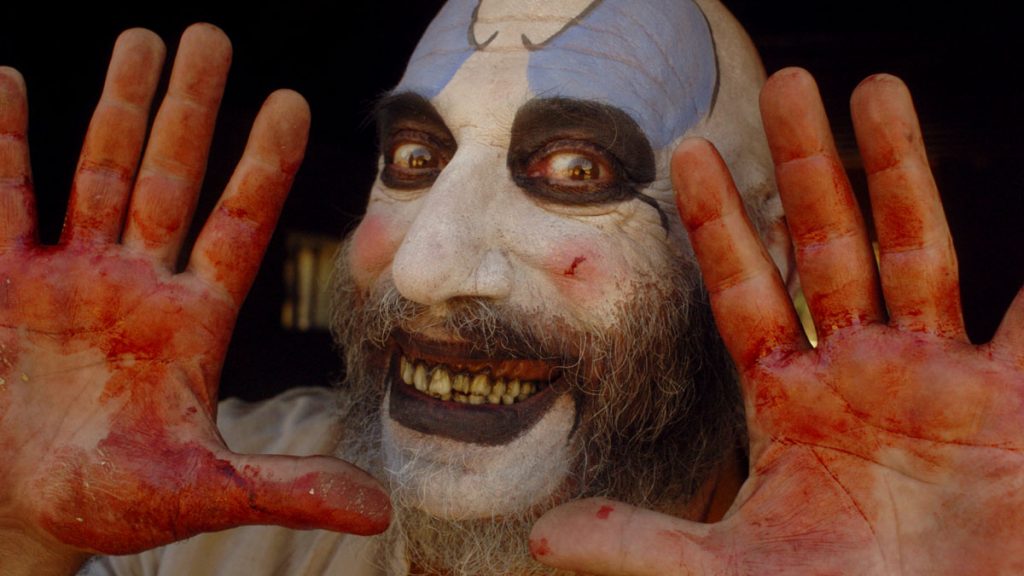
is a New Jersey–based writer. He’s an Associate Editor at Bright Wall/Dark Room, and his writing has appeared in Reverse Shot, MUBI Notebook, the Los Angeles Review of Books, and elsewhere.
“On the rare occasion, a special child appears…” I first watched The Lords of Salem in an empty multiplex in Easton, PA, in 2013. After 10 minutes, I had to go ask them to turn off the lights. Two days later, I came back...
BY LAURA WYNNE | October 26, 2024
I say “hello” into a telephone and Chucky says “hi” back. I realize that I perhaps haven’t adequately prepared myself for what this might feel like.
BY FRANK FALISI | September 3, 2024
Coulrophobia—the fear of clowns—is no joke. Pennywise, that damn clown hiding under the bed in Poltergeist, and just good old trips to the local circus paired with a child’s dark imagination have been nightmare fuel for many.
BY LAURA KERN | April 19, 2022
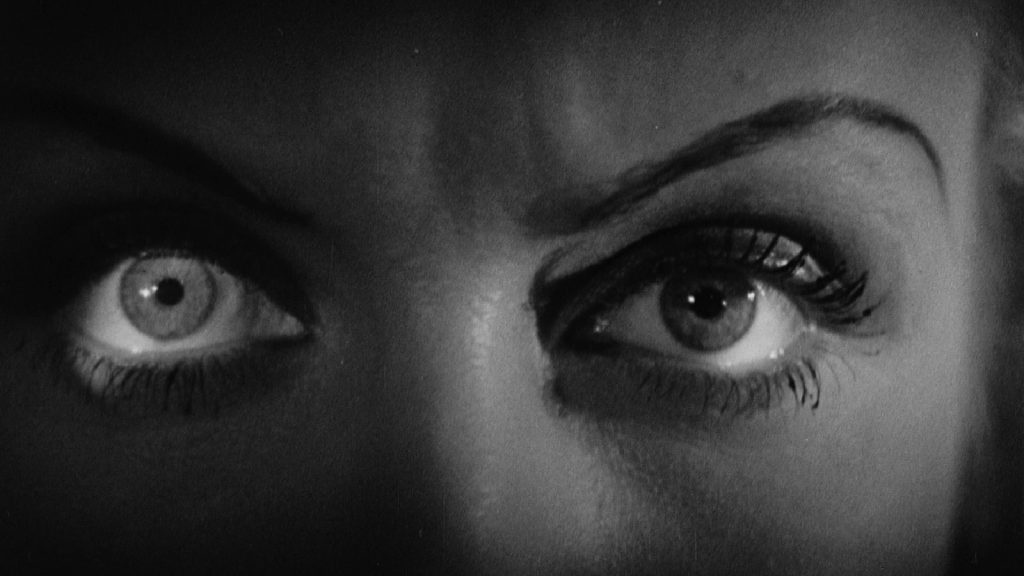
This pre-Code offering packs a lot of story into its typically brisk running time, with several plot threads weaving together a (not always successful) tapestry of spooky and criminal doings.
READ MORE >
BY ANN OLSSON | Month 00, 2021
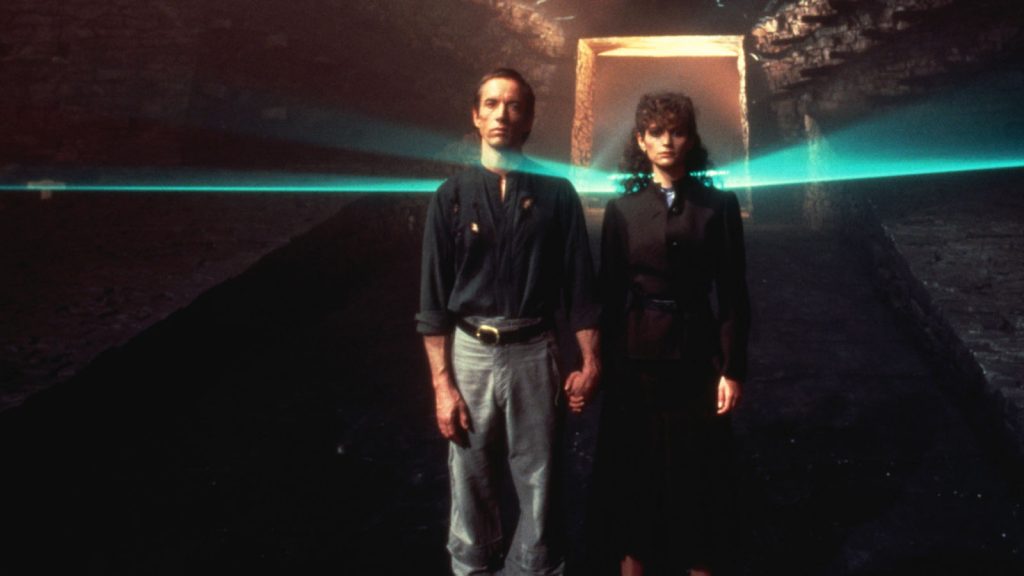
In what could be the fastest-resulting rape revenge movie, a drunken lout brutally forces himself on Ida, the young woman who doesn't return his affections, during a party over Labor Day.
READ MORE >
BY LAURA KERN | Month 00, 2021
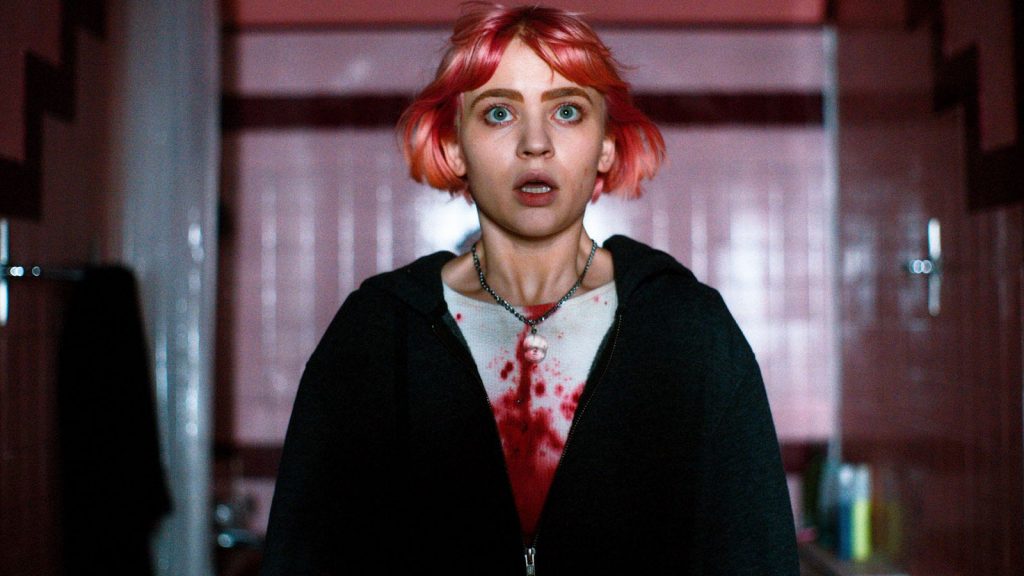
Beast is a lot of movies in one package - fractured fairy tale, belated-coming-of-age story, psychological drama, regional horror film - but above all it's a calling card for its leading lady, Jessie Buckley.
READ MORE >
BY LAURA KERN | Month 00, 2021